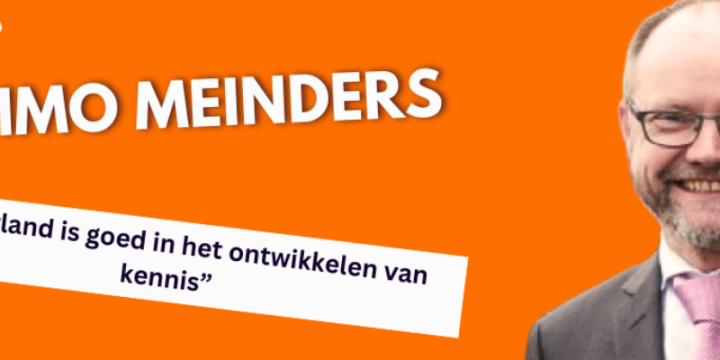After the development of 5G mobile networks, work is now starting worldwide on the preparation of 6G, the next generation of mobile that is expected to be on the market in 2030. State-of-the-art mobile networks ensure that we can all benefit from the opportunities that digitization offers. They contribute to the growth of our earning capacity in all sectors of the economy. With the Future Network Services (FNS) programme, the Netherlands is creating its own and important position in this development, focusing on those areas where the Netherlands can distinguish itself. This ultimately contributes to the digital autonomy of the Netherlands and the European Union.
Purpose of the project
The FNS program gives the Netherlands a strong position in the global 6G value chain. The focus is on intelligent radio components and antennas, intelligent networks and leading applications in socially important sectors. Afterwards, companies are ready for product development. After the development of 5G mobile networks, work is now starting worldwide on the preparation of 6G, the next generation of mobile that is expected to be on the market in 2030. State-of-the-art mobile networks ensure that we can all benefit from the opportunities that digitization offers. They contribute to the growth of our earning capacity in all sectors of the economy. With the Future Network Services (FNS) programme, the Netherlands is creating its own and important position in this development, focusing on those areas where the Netherlands can distinguish itself. This ultimately contributes to the digital autonomy of the Netherlands and the European Union.
The integrated approach is unique: the improved performance of 6G is achieved with intelligent hardware and software, which ensure more flexibility of the network. This also provides the necessary control to make networks and applications more reliable and sustainable. And by closely connecting technology and applications, market opportunities increase. FNS is working together in Europe to make the technologies part of the international 6G standards.
With a public-private investment in research, innovation and education (human capital), a strong Dutch 6G ecosystem will be created in the period 2024-2029.
What does the National Growth Fund invest in?
The National Growth Fund proposal 6G Future Network Services invests in:
- research and development of 6G technology;
- innovative applications in, for example, the energy, healthcare and high-tech industry sectors;
- strengthening the ecosystem in the Netherlands with a national 6G test bed, education and training activities, and support for startups and SMEs.
Budget
The National Growth Fund invests a maximum of € 203 million in the project. This amount consists of a conditional award of €61 million and a reserve of €142 million.
Contribution to economic growth in the Netherlands
The program increases the chances for Dutch companies to gain a position in the still emerging global 6G market. FNS also accelerates the possibilities for Dutch businesses to use 6G, for example by better connecting processes and creating new revenue models. More indirectly, FNS contributes to the competitive position of the Netherlands with a digitally skilled population and excellent digital infrastructure, a crucial location factor. The new 6G networks reduce societal vulnerability due to human or technical failure and to risky strategic dependencies in the supply chain. The energy consumption of mobile networks in the Netherlands is kept as low as possible with new technology and the networks make an optimal contribution to the sustainability transitions in other sectors.
Who leads the project?
The FNS Program Board is leading the project. TNO is responsible for the integral realization. Final responsibility for the program lies with the Ministry of Economic Affairs and Climate Policy.
Status
A core consortium has been formed with 60 partners, including leading telecom and semiconductor manufacturers, mobile operators, ICT companies, knowledge institutions and governments. The program is in the quartermaster phase. Preparations are being made in order to start implementation at the beginning of 2024, including setting up governance, developing a cooperation agreement and further exploring European cooperation.





